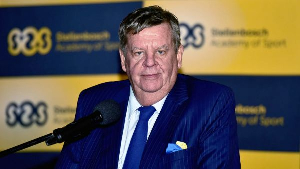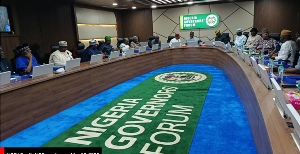The Minister of Finance, Mr Yaw Osafo Maafo, has observed that delays by donor partners in releasing loans which have already been agreed upon impact adversely on the implementation of government policies, programmes and projects, particularly those in the area of poverty reduction.
The minister, who said this during an interaction with the United Nations Development Programme (UNDP) in Accra yesterday, urged the donor community to expedite action in the release of such funds to provide a sound footing for the government to successfully carry through such policies and programmes for the benefit of the people (see report on the centre pages).
It is not difficult to understand and appreciate the reasons behind the fears and the accompanying appeals made by the minister in respect of this matter. The 2002 national budget from which government programmes and projects are to be implemented is largely donor driven. The bulk of the funds, estimated to be over 50 per cent, is expected to be procured from external sources.
The Ghana Poverty Reduction Strategy (GPRS) from which the policies and programmes of the various ministries, departments and agencies are to be informed has a substantial foreign component to its funding. Considering that current government policy is based on poverty reduction data under the aegis of the GPRS, it must be a matter of serious concern to the government that such funds so pledged by the nation’s development partners come in handy and at the right time.
In our opinion, the timing of the release of the funds is important not only because the money is urgently needed now but also because any further delay means incurring extra costs and further distortions in the implementation of the planned policies.
In making this point, it has to be noted that the problem, in most of the cases has had to do with the lack of adequate resources at the right time to back the programmes more than it is with the quality of the programmes themselves, lapses in implementation notwithstanding. It is also worth pointing out that the existence of the requisite political will and determination of the government to succeed in such endeavours need to be supported with the timely release of funds to bring prosperity and relief to the people.
The failure of our development partners in the past to make good their pledges on time and in the amounts promised, has disrupted national plans and contributed to exacerbating poverty and hardship in the country.
We, therefore, wish to take the opportunity of the visit of the IMF Managing Director to Ghana to welcome him and to urge him to use the leverage and influence of his office to persuade and convince our development partners to carry through their pledges in good time.
That is not to suggest we are unaware of certain risk factors or difficulties in such disbursement. It is in our best interest to rely more on ourselves and use external assistance as a complement though current conditions make it difficult to realise this.
The Graphic further believes that one of the best ways of reducing our dependence is to increase our ability as a people to produce and export more to boost our foreign exchange reserves.
In this regard, we urge our development partners to endeavour to embrace free trade and open up their markets to our exports and also support efforts for the reform of the unjust and unfair international economic order to enhance our earning capacity.
On the other hand, we also wish to urge our entrepreneurs to take full advantage of opportunities such as the African Growth and Opportunity Act (AGOA) to produce and export more to the developed nations to earn more to support the task of national reconstruction.
This is the most sustainable way to progress and national development.
General News of Friday, 3 May 2002
Source:












